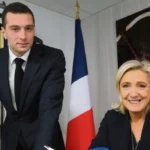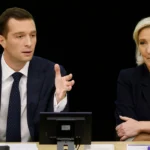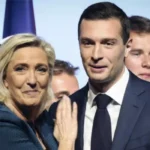Nearly two years after Russia launched its military offensive in Ukraine, the United Nations announced on Monday that it needs $4.2 billion in 2024 for humanitarian aid to Ukrainians and millions of refugees. “The recent wave of attacks is a reminder of the devastating cost of this war for civilians, at a time when a harsh winter increases the urgent need for life-saving humanitarian aid,” the UN said.
This sum includes a call for donations to help the Ukrainian population living in the country which amounts to 3.1 billion dollars. In 2023, the target set was $3.9 billion, but only 64% was funded. Thus, the UN decided this year to lower its ambitions, choosing to focus on the most urgent needs.
According to the international organization, 14.6 million people will need humanitarian aid in Ukraine this year, or 40% of the population, including 8.5 million to be reached as a priority. “Hundreds of thousands of children live in frontline communities, terrified, traumatized and deprived of the most basic things,” Under-Secretary-General for Humanitarian Affairs Martin Griffiths said in a statement. “This simple fact should compel us to do everything possible to bring more humanitarian aid to Ukraine.” Homes, schools, hospitals are regularly targeted, as well as water, gas and electricity networks. “It is the very fabric of society that is under attack, with devastating consequences,” he stressed.
Precariousness of refugees
In addition to the Ukrainians still present there, many refugees also find themselves in precarious situations. Martin Griffiths and the head of the UN refugee agency (UNHCR), Filippo Grandi, launched their aid plan this Monday during the joint press conference at the United Nations Office in Geneva, at the Palais des Nations.
In fact, some 6.3 million people have fled Ukraine and are refugees mainly across Europe. This plan then aims to raise $1.1 billion to help some of them, i.e. 2.3 million people, and their host communities. “Millions of Ukrainian refugees still need urgent help,” insisted Filippo Grandi. Only 40 to 60% of refugees have found employment, often below their qualifications, and only a quarter of them have difficulty accessing healthcare. Only half of Ukrainian refugee children of school age are educated in host countries
“Host countries continue to protect them and integrate them into society, but many vulnerable refugees still need help. They should not feel forced to return home because they cannot make ends meet in exile,” said Filippo Grandi.
Aid drying up
The United Nations press conference takes place while Ukrainian President Volodymyr Zelensky is traveling to Switzerland to participate in the Davos economic forum which opens this Monday, and where he will make a “special speech” on this occasion.
But while conflicts in Ukraine and the Gaza Strip are expected to dominate the forum, Ukrainian officials will face their allies’ weariness of their country’s long war. According to a report from the German research center Kiel Institute published in December, the aid promised to Ukraine between August and October 2023 has, in fact, fallen by almost 90% compared to the same period in 2022, reaching its level the lowest since the start of the war.
On the European side, an EU aid program worth 50 billion euros is still blocked in Brussels following Hungary’s veto.
On the other side of the Atlantic, Republicans also refused new budgetary spending for Ukraine requested by Joe Biden’s administration, demanding in exchange tougher measures on immigration. Last week, Volodymyr Zelensky also denounced the Western hesitations on aid to his country, believing that they encouraged Russian President Vladimir Putin.
Nevertheless, NATO countries reaffirmed last week their commitment to strengthening Ukraine’s defenses. On the French side, the new head of French diplomacy, Stéphane Séjourné, and his German counterpart reaffirmed on Sunday their countries’ desire to support Ukraine “as long” as necessary in the face of Russia’s offensive.
This article is originally published on latribune.fr






